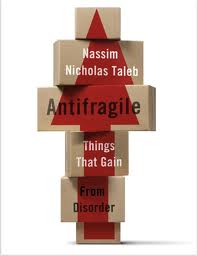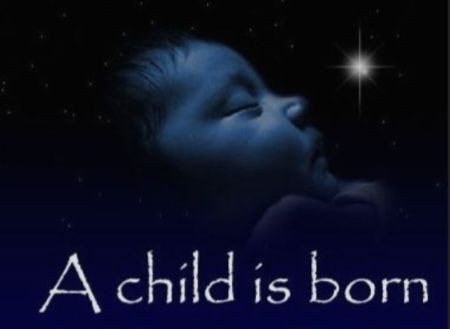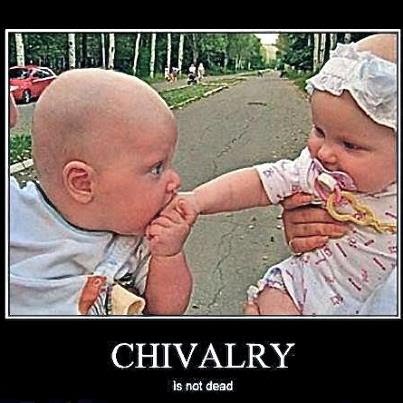 Rob Bell, former mega-church pastor and author of the book “Love Wins: A Book about Heaven, Hell and the Fate of Every Person Who Ever Lived,” which disputes the existence of hell, is in the news again. The theological position that he staked out in his book drove a wedge between him and a big part of the Mars Hill congregation in Grandville, Michigan. Approximately 3000 members left after they found out what their pastor believed, and Rob and Kristen Bell eventually departed as well. Click on this link to read more about his situation. http://www.christianpost.com/news/rob-bell-tells-how-love-wins-led-to-mars-hill-departure-85995/.
Rob Bell, former mega-church pastor and author of the book “Love Wins: A Book about Heaven, Hell and the Fate of Every Person Who Ever Lived,” which disputes the existence of hell, is in the news again. The theological position that he staked out in his book drove a wedge between him and a big part of the Mars Hill congregation in Grandville, Michigan. Approximately 3000 members left after they found out what their pastor believed, and Rob and Kristen Bell eventually departed as well. Click on this link to read more about his situation. http://www.christianpost.com/news/rob-bell-tells-how-love-wins-led-to-mars-hill-departure-85995/.
Bell claims that the Bible must be re-interpreted in accordance with the changing “water level” of the culture. The idea of God punishing people in eternal fires of hell, he maintains, is no longer an acceptable thought for the modern mind. While he is right about the cultural shift, he is dead wrong about re-interpreting the Bible. I am going to use this occasion to proclaim the clear scriptural teaching about the destiny of the soul, but first, just a word or two about Bell’s error.
First, the Word of God is forever settled in heaven (Psalm 33:11; 119:89; 119:152). Also, the Apostle John set forth a severe proscription against anyone adding to or taking away from this Book (Revelation 22:18-19). The outrage of adding or subtracting from the Book is not just the penalty, but the audacity of the one doing so. Are we to believe that merely because a person thinks the Bible should be rewritten, that it constitutes both the authority to do it and the substance of the change? I find that insufferably arrogant. At what point between Genesis and Revelation does this authority stop? If cultural sensitivities determine the truth of the Bible, which sin is no longer to be considered sinful? Which element of the gospel will no longer be viable? The cross? The blood? The virgin birth? Which aspects of the scriptural record will undergo the knife? The miracles? Creation? Verbal inspiration? The infallibility of the Word itself? Much of this has already happened in liberal seminaries and mainline denominations. The results of this evolution are patently obvious.
With regard to our eternal destiny, I will limit my discussion to three areas (with a few subpoints). First, is there an actual heaven? Second, does hell exist? Last, does each person have an eternal soul? I will wrap it up with some comments on why I believe these are important truths and we should espouse them and proclaim them.
Is there an actual heaven? The Bible contains many references to heaven as the physical realm of the atmosphere (Genesis 1:1; 1:14), as the place where God dwells (2 Samuel 22:14; 1 Kings 8:32; Isaiah 14:13) and as the destiny of the righteous (John 14:3; 2 Corinthians 5:2; 1 Thessalonians 4:17; Revelation 4:1).
Heaven is a spiritual place. Scripture specifies three heavens, since “the third heaven” is revealed to exist (2 Corinthians 12:2), and it is logical that a third heaven cannot exist without a first and second. Scripture does not describe specifically the first and second heaven.
The first, however, apparently refers to the atmospheric heavens of the birds (Hosea 2:18, “sky”) and of clouds (Daniel 7:13). The second heaven may be the stellar spaces (cf. Genesis 1:14-18). It is the abode of all supernatural angelic beings. The third heaven is the abode of God. While its location is unrevealed, there is no question that it is real. It is the divine plan to populate the third heaven. It is a place (John 14:1-3). It is called “glory” (Hebrews 2:10); those who enter it will be perfected forever. The apostle John was called into heaven (Revelation 4:1). The apostle Paul was caught up to the third heaven (2 Corinthians 12:1-9). He was prohibited, however, from revealing what he saw and heard.
Heaven is a place of beauty (Revelation 21:1-22:7), of life (1 Timothy 4:8), service (Revelation 22:3), worship (Revelation 19:1-3), and glory (2 Corinthians 4:17-18). Revelation 21:1-2 And I saw a new heaven and a new earth: for the first heaven and the first earth were passed away; and there was no more sea. And I John saw the holy city, new Jerusalem, coming down from God out of heaven, prepared as a bride adorned for her husband.
The Apostle John describes the New Jerusalem, the heavenly city. (1) The bride, the Lamb’s wife, the church, referred to as “the general assembly and church of the first-born who are enrolled in heaven.” (2) The redeemed saints of the OT. These are referred to as “the spirits of righteous men made perfect.” (3) “Myriads of angels,” i.e., unfallen angels.
Our Lord referred to this city in John 14:2-3 when He said He would go away and would come again and that He was preparing “a place” for His disciples. Entrance to the city will be by translation (glorification) or resurrection, both in the case of the church saints and the saved OT saints. Thus all the redeemed of the ages who enter this city may do so by resurrection. The city becomes the abode of all the resurrected saints who enter it at the time of their resurrection” (Much of this information may be found in Things to Come, by Dwight Pentecost).
The heavenly city is described as lavishly magnificent. It possesses “the glory of God” (Revelation 21:11), with a “brilliance … like a very costly stone, as a stone of crystal-clear jasper” (v. 11). Its twelve gates are inscribed with the names of the twelve tribes of sons of Israel. The twelve foundations of the city’s wall have the names of the twelve apostles of the Lamb (v. 14). The city is called “the bride, the wife of the Lamb” (v. 9). The foundations of the walls of the city are garnished with precious stones such as jasper, sapphire, chalcedony, emerald, sardonyx, sardius, chrysolite, beryl, topaz, etc. The twelve gates are set each one so that they consist of one huge pearl. The New Jerusalem city is pure gold. No temple is there because God is unveiled in all of His glory. No light is needed because the glory of God is revealed in the city. In the heavenly city paradise is restored, and the river of the water of life flows freely.
If heaven is only a state of mind, a virtual reality of some kind or a surrealistic reverie calculated to mesmerize and placate gullible minds, then the Word of God is a dangerous book. (Precisely what some say it is). But if it is to be believed, then the magnificent description of its grandeur and glory is to be embraced for every saint of God. It is our inheritance.
Does Hell exist? Just as for heaven, there are a number of ways that the Bible refers to a place called hell. It was a place where city dwellers took their refuse and burned it. It was a symbolic place of punishment. It was a “holding place” for the wicked dead. It was also used to describe an intense time of trial and persecution.
Jesus believed in hell. He mentioned hell 15 times. The New Testament contains 23 references to hell in all. If you check all the references, you will find it described in great detail.
Hell is a place that we are warned against.
Psalm 9:17 The wicked shall be turned into hell, and all the nations that forget God.
Proverbs 7:27 Her house is the way to hell, going down to the chambers of death.
Hell will be a place that burns with fire.
Matthew 5:22 But I say unto you, That whosoever is angry with his brother without a cause shall be in danger of the judgment: and whosoever shall say to his brother, Raca, shall be in danger of the council: but whosoever shall say, Thou fool, shall be in danger of hell fire.
Hell will be a place of wailing and gnashing of teeth, a Hebrew phrase that means great anguish of soul.
Matthew 13:40-42 As therefore the tares are gathered and burned in the fire; so shall it be in the end of this world. The Son of man shall send forth his angels, and they shall gather out of his kingdom all things that offend, and them which do iniquity; And shall cast them into a furnace of fire: there shall be wailing and gnashing of teeth.
Hell will be a place of fire and brimstone.
Revelation 14:10 The same shall drink of the wine of the wrath of God, which is poured out without mixture into the cup of his indignation; and he shall be tormented with fire and brimstone in the presence of the holy angels, and in the presence of the Lamb:
Revelation 19:20 And the beast was taken, and with him the false prophet that wrought miracles before him, with which he deceived them that had received the mark of the beast, and them that worshipped his image. These both were cast alive into a lake of fire burning with brimstone.
Revelation 20:10 And the devil that deceived them was cast into the lake of fire and brimstone, where the beast and the false prophet are, and shall be tormented day and night for ever and ever.
Hell is night. (Outer darkness, separation from light.)
Matthew 8:12 But the children of the kingdom shall be cast out into outer darkness: there shall be weeping and gnashing of teeth.
Matthew 22:13 Then said the king to the servants, Bind him hand and foot, and take him away, and cast him into outer darkness; there shall be weeping and gnashing of teeth.
Matthew 25:30 And cast ye the unprofitable servant into outer darkness: there shall be weeping and gnashing of teeth.
John 3:19-20 And this is the condemnation, that light is come into the world, and men loved darkness rather than light, because their deeds were evil. 20 For every one that doeth evil hateth the light, neither cometh to the light, lest his deeds should be reproved.
Hell is the antithesis of heaven.
Whatever is true of heaven, the opposite is true of hell.
- Light Darkness
- Day Night
- Joy Anguish
- No tears Weeping
- Fellowship Loneliness
- Acceptance Rejection
- Love Hatred
- God Satan
- Peace Turmoil
- Knowledge Ignorance
There will be no annihilation of souls in hell. They will exist in a living death.
Mark 9:44 Where their worm dieth not, and the fire is not quenched. Verses 46, 48 say the identical thing.
Fallen angels will be in hell.
Jude 6-8 And the angels which kept not their first estate, but left their own habitation, he hath reserved in everlasting chains under darkness unto the judgment of the great day.
The devil, antichrist, and the false prophet will be in hell.
Revelation 20:10 And the devil that deceived them was cast into the lake of fire and brimstone, where the beast and the false prophet are, and shall be tormented day and night for ever and ever.
The wicked men of Sodom and Gomorrah will be in hell.
Jude 7 Even as Sodom and Gomorrah, and the cities about them in like manner, giving themselves over to fornication, and going after strange flesh, are set forth for an example, suffering the vengeance of eternal fire.
Other wicked persons in the Bible will be in hell.
- Cain, the first murderer.
- Nimrod, the mighty hunter who founded the pagan city of Babylon.
- Ahab, the vile king who stole Naboth’s vineyard.
- Jezebel, the treacherous wife of Ahab who introduced Baal to Israel.
- Athaliah, the conniving Queen who killed her own son.
- Belshazzar, the Babylonian king who violated the holy vessels of the temple.
- Judas, who sold Jesus for thirty pieces of silver.
- Pilate, who chose political expediency over justice.
- Alexander the Coppersmith, who did the Apostle Paul much evil.
Dives the Rich Man
Luke 16:19-31 There was a certain rich man, which was clothed in purple and fine linen, and fared sumptuously every day: And there was a certain beggar named Lazarus, which was laid at his gate, full of sores, And desiring to be fed with the crumbs which fell from the rich man’s table: moreover the dogs came and licked his sores. And it came to pass, that the beggar died, and was carried by the angels into Abraham’s bosom: the rich man also died, and was buried; And in hell he lift up his eyes, being in torments, and seeth Abraham afar off, and Lazarus in his bosom. And he cried and said, Father Abraham, have mercy on me, and send Lazarus, that he may dip the tip of his finger in water, and cool my tongue; for I am tormented in this flame. But Abraham said, Son, remember that thou in thy lifetime receivedst thy good things, and likewise Lazarus evil things: but now he is comforted, and thou art tormented. And beside all this, between us and you there is a great gulf fixed: so that they which would pass from hence to you cannot; neither can they pass to us, that would come from thence. Then he said, I pray thee therefore, father, that thou wouldest send him to my father’s house: For I have five brethren; that he may testify unto them, lest they also come into this place of torment. Abraham saith unto him, They have Moses and the prophets; let them hear them. And he said, Nay, father Abraham: but if one went unto them from the dead, they will repent. And he said unto him, If they hear not Moses and the prophets, neither will they be persuaded, though one rose from the dead.
Think of it! Finally ready to do something for God, but no opportunity to fulfill it. Hell makes a believer out of everyone who goes there, but supplies no altar to repent. The transgressors of all ages will inhabit the regions of the damned.
Galatians 5:19-21 Now the works of the flesh are manifest, which are these; Adultery, fornication, uncleanness, lasciviousness, idolatry, witchcraft, hatred, variance, emulations, wrath, strife, seditions, heresies, envyings, murders, drunkenness, revellings, and such like: of the which I tell you before, as I have also told you in time past, that they which do such things shall not inherit the kingdom of God.
Revelation 21:8 But the fearful, and unbelieving, and the abominable, and murderers, and whoremongers, and sorcerers, and idolaters, and all liars, shall have their part in the lake which burneth with fire and brimstone: which is the second death.
These are the questions that Rob Bell and others like him find too perverse to ask, let alone try to answer. Yes, our twenty-first century minds recoil at even the thought. No one deserves this, we may think. Our society is having an increasingly difficult time sentencing people to capital punishment. How much more difficult to conceive of a hell!
Some even ask, “How can you believe in a God who would make a hell?”
The answer is this: God didn’t create hell for any human being! He created it for the devil and his angels. He enlarged hell and opened its mouth without measure to swallow up the existence of evil in the universe. If people end up in hell, it is not because God sent them there. It is because they ignored every warning sign along the way. It is because they chose hell over heaven! They closed their hearts to the spirit of God, shut their ears to the preaching of the gospel, and hardened their spirit to the conviction of the Word. There is no good reason for anyone to go to the lake of fire and brimstone.
The cross stands in the way. The Spirit of God pulls each soul back. The church blocks the road. Every song, every altar call, every sermon preached, every testimony shared, every prayer prayed, every whispered encouragement is heaven’s attempt to save sinners from hell!
Jude 22-23 And of some have compassion, making a difference: And others save with fear, pulling them out of the fire; hating even the garment spotted by the flesh.
Mankind has an eternal soul that will be conscious throughout eternity. We understand that man is a living soul from Genesis 2:7 which says, “And the LORD God formed man of the dust of the ground, and breathed into his nostrils the breath of life; and man became a living soul.” While the body dies and returns to dust (Genesis 3:19; Ecclesiastes 3:20), the soul does not suffer the same fate. The soul was not confined to our existence on earth, but was spoken of as being transcendent over this present form of life. This may be starkly seen in the account of the great white throne judgment.
“And I saw a great white throne, and him that sat on it, from whose face the earth and the heaven fled away; and there was found no place for them. And I saw the dead, small and great, stand before God; and the books were opened: and another book was opened, which is the book of life: and the dead were judged out of those things which were written in the books, according to their works. And the sea gave up the dead which were in it; and death and hell delivered up the dead which were in them: and they were judged every man according to their works. And death and hell were cast into the lake of fire. This is the second death. And whosoever was not found written in the book of life was cast into the lake of fire. Revelation 20:11-15.
Note that the dead were brought up before the judgment. How would that be possible unless they were conscious and able to comprehend their judgment? Had they ceased to exist at the point of their death, it would be ludicrous to imagine such a scene. The very fact that it appears in the scripture is a powerful argument for the consciousness of the soul.
The most widely known verse that refers to eternal life is John 3:16. “For God so loved the world, that he gave his only begotten Son, that whosoever believeth in him should not perish, but have everlasting life.” Some argue that this everlasting life is only for the saved soul. Upon death, the unsaved soul just ceases to exist. In other words, there is no eternal consciousness for one who dies without salvation. This person dies like an animal.
How can we know, then, if the unsaved person maintains consciousness after death? We cannot know this by personal experience, or by anyone who has genuinely, clinically died. Some cite “near death” experiences as a way to know, but “near” death is not death! Therefore, we have only the Bible to look to for information about the plight of the soul after death. The preponderance of scriptural verses about the wicked dead strongly suggest that there is consciousness for the wicked soul after death. That consciousness validates the reality of suffering and torment. Look at these verses:
“And the third angel followed them, saying with a loud voice, If any man worship the beast and his image, and receive his mark in his forehead, or in his hand, The same shall drink of the wine of the wrath of God, which is poured out without mixture into the cup of his indignation; and he shall be tormented with fire and brimstone in the presence of the holy angels, and in the presence of the Lamb: And the smoke of their torment ascendeth up for ever and ever: and they have no rest day nor night, who worship the beast and his image, and whosoever receiveth the mark of his name.” Revelation 14:9-11.
But the children of the kingdom shall be cast out into outer darkness: there shall be weeping and gnashing of teeth. Matthew 8:12.
The Son of man shall send forth his angels, and they shall gather out of his kingdom all things that offend, and them which do iniquity; And shall cast them into a furnace of fire: there shall be wailing and gnashing of teeth. Matthew 13:41-42.
And cast ye the unprofitable servant into outer darkness: there shall be weeping and gnashing of teeth. Matthew 25:30.
Those who end up in outer darkness, a condition descriptive of hell, must still have some capacity for sorrow, shame and suffering. Whether this anguish is physical or not is immaterial. It pertains to the quality of being sentient and aware.
Why does all this matter? First, all Bible truth matters. A genuine respect for the Word of God necessitates an attitude of obedience and submission. Responsible people are seekers of truth, and the knowledge of truth is its own reward.
Second, the concept of accountability should pervade all human behavior. If there are no consequences to our decisions and actions, then the full impact of what we do is lost. If death for the wicked means that they will be perceived as never having lived, then who cares? In fact, isn’t that what many suicide victims desire?
Finally, the existence of heaven, hell and the eternal soul accentuates and elevates the importance of Calvary beyond mere religion or parochial issues. Christ’s ignominious death, unspeakable pain and base humiliation would have been hardly more than entertainment had there not been grave consequences to His entire ordeal. Our goal should not just be to avoid hell and inherit heaven, but to bring glory to God. We do that best by embracing the plain teachings of the Bible. It is God’s Word.
 Friday, December 14, 2012 at 11:15AM
Friday, December 14, 2012 at 11:15AM  In his new book, Antifragile, Nassim Nicholas Taleb coined the term, antifragile, to supply a word that means the opposite of fragile, evidently missing from every language and vocabulary in existence. (No, supercalifragilisticexpialidocious doesn’t quite work.) He reasoned that a fragile object that suffers stress or attack will probably sustain some degree of damage, but the opposite effect cannot be fully expressed by any known word. The terms, strong or robust are inadequate because a strong or robust object under stress does not get better. The logic is simple: an object attacked that results in upgrade or improvement is more than just robust or strong. It is…well, the opposite of fragile: antifragile! http://www.amazon.com/Antifragile-Things-That-Gain-Disorder/dp/1400067820
In his new book, Antifragile, Nassim Nicholas Taleb coined the term, antifragile, to supply a word that means the opposite of fragile, evidently missing from every language and vocabulary in existence. (No, supercalifragilisticexpialidocious doesn’t quite work.) He reasoned that a fragile object that suffers stress or attack will probably sustain some degree of damage, but the opposite effect cannot be fully expressed by any known word. The terms, strong or robust are inadequate because a strong or robust object under stress does not get better. The logic is simple: an object attacked that results in upgrade or improvement is more than just robust or strong. It is…well, the opposite of fragile: antifragile! http://www.amazon.com/Antifragile-Things-That-Gain-Disorder/dp/1400067820 






